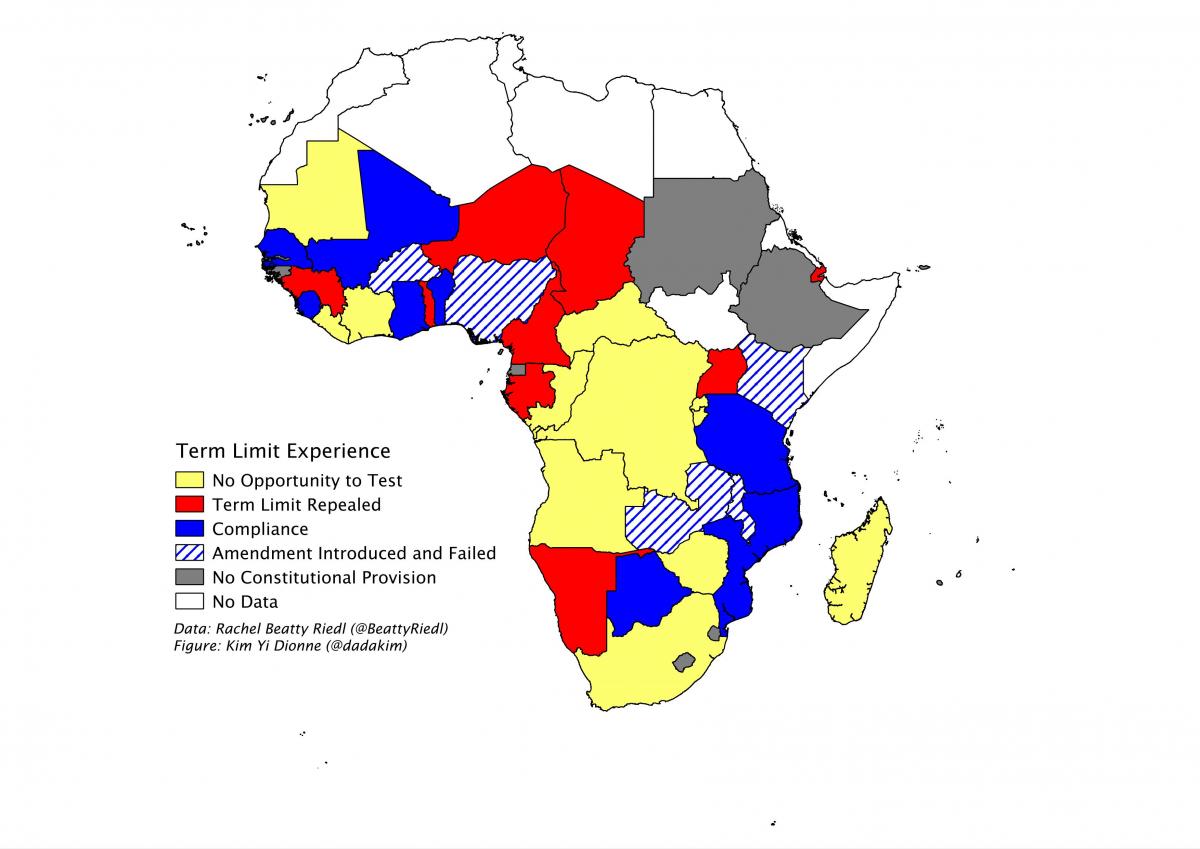The Advantages - and Drawbacks - of Presidential Term Limits as a Tool for Building Democracy in Africa
Across Sub-Saharan Africa, many have advocated presidential term limits as a way to ensure that sitting executives do not remain entrenched and political opportunities are created for competitive elections and alternations in power. Attempts by sitting African presidents to extend or remove term limits have led to conflicts – sometimes resolved by reaffirming term limits, but at other times leading either to prolonged political disorder or authoritarian stability. The future of presidential term limits on the continent is still evolving, as many countries contend with the difficulties of building democracy.
Why Term Limits?
Campaigns to establish or defend presidential term limits have been pivotal to democratic political change in Africa, for various reasons. These provisions have been used to circumscribe the power of presidential incumbents in countries where control and resources are highly centralized and loyalty to the ruling party has been the ready route to public benefits. Campaigns for term limits have also enabled opposition parties to unite, and to overcome fragmentation and divisions among contesting leaders to mount concerted efforts to oust incumbents. Civil society organizations also support term limits as a way to avoid partisan splits and advance the rule of law. Term limits likewise show a possible pathway to uphold the legal autonomy of the judicial system. Public opinion is often mobilized around campaigns for term limits, enabling collective action to challenge offenses or corruption by the ruling regime. And, finally, struggles for term limits offer openings for international pressures on behalf of neutral application of the law and the establishment of preconditions for more competitive democratic elections.
What Actually Happens
Because of the many ways term limits can facilitate transitions to democracy and the rule of law, observers often presume that campaigns to install or defend them are invariably healthy and worthy of support from civil society organizations, the general public, and international actors committed to furthering democracy. However, actual data on political battles and transitions in African nations show that alternative outcomes are possible when term limits are at issue:
- When incumbent executives in sub-Saharan Africa have launched campaigns to repeal term limits, those efforts have very frequently succeeded. In Uganda, for example, President Yoweri Museveni struck a bargain with other political elites when he bundled a repeal of term limits with a constitutional change to allow multiparty competition. Similar repeal bargains favoring continued incumbency happened in Cameroon, Chad, Gabon, Namibia, and Niger.
- In a significant minority of cases, contestations around term limits have led to prolonged conflict and even civil war. In Burkina Faso, for example, the government dissolved after mass protests in 2014, leading to a military take-over. International pressure led to a transitional government with power-sharing between civilian and military forces, but elections remain in doubt.
- Across sub-Saharan Africa, term limits have been included in 34 constitutions implemented since the 1990s. But these provisions have been fully respected in only one-fifth of the countries. Conflicts over limits are typical. In Benin, for example, President Mathieu Kerekou reportedly offered members of Parliament substantial bribes to support a third term, but civil society mobilization and opposition politicians successfully pressed for abandonment of the attempt. In other countries including Nigeria and Zambia, amendments to get rid of limits were defeated by normal institutional means.

Overall, divergent pathways have been and continue to be possible. Where term limits are repealed, authoritarian stability is typical, as the incumbent president and party stay in power. Even when the rule survives, it can sometimes be circumvented, as happened in Burundi and Senegal where incumbents exploited technicalities to run for further terms. And term limits have at times persisted without challenge because a dominant or authoritarian party has well-established procedures for replacing the top brass with new leaders, as in Tanzania.
Fraught Transitions Ahead
In more than a third of African countries, we do not yet know what may happen when presidential term limits are put to the test. Transitions from strong-man executives and entrenched ruling parties are always fraught with tension and uncertainty. As one fledgling African democracy after another tries to navigate these tricky waters, international policymakers can help – by supporting domestic forces working to create more openings for democratic contestation, and sometimes by helping previously entrenched presidents make graceful exits to new roles in regional and international bodies. Presidential term limits are not a panacea, but when respected they can facilitate peaceful transitions and democratic contestation.
